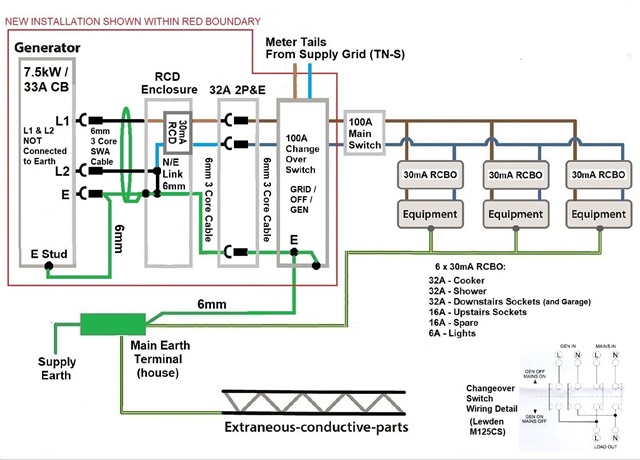Hi All,
I recently came across a very interesting article - link below:
https://electrical.theiet.org/wiring-matters/years/2020/82-september-2020/mythbusters-6/
Where I find this article very interesting, is in relation to the requirement / or potentially non-requirement of an Earth Spike, for the Temporary connection of a Generator to a building (in the article a Site Office is mentioned).
Please refer to the attached rough sketch / scheme for the Temporary Connection of Generator to Domestic Distribution System, which was originally based upon Figure 4 from the linked article - I wonder whether this could be considered, at least in principle, to be an appropriate proposal for the temporary connection of a generator to a domestic premises? In the attached scheme, there is no Earth Spike, and a 30mA RCD is included at the output of the generator, which would be connected to the generator via an appropriately sized SWA Cable. I would consider the potential for some nuisance tripping of the upstream 30mA RCD (in reality, this would be a rare occurrence) to be an acceptable price to pay, for the added protection that it would provide.
I would very much appreciate, if any of you could possibly find a moment or two, in order to share your thoughts in relation to the above / attached.
Thanks,
Harry G.

